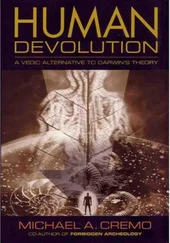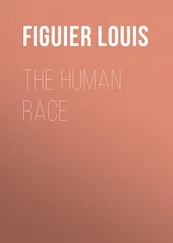Michael Cremo - Forbidden Archeology - The Hidden History of the Human Race
Здесь есть возможность читать онлайн «Michael Cremo - Forbidden Archeology - The Hidden History of the Human Race» весь текст электронной книги совершенно бесплатно (целиком полную версию без сокращений). В некоторых случаях можно слушать аудио, скачать через торрент в формате fb2 и присутствует краткое содержание. Год выпуска: 1992, ISBN: 1992, Издательство: Torchlight Publishing, Жанр: Старинная литература, на английском языке. Описание произведения, (предисловие) а так же отзывы посетителей доступны на портале библиотеки ЛибКат.
- Название:Forbidden Archeology: The Hidden History of the Human Race
- Автор:
- Издательство:Torchlight Publishing
- Жанр:
- Год:1992
- ISBN:9780892132942
- Рейтинг книги:4 / 5. Голосов: 1
-
Избранное:Добавить в избранное
- Отзывы:
-
Ваша оценка:
- 80
- 1
- 2
- 3
- 4
- 5
Forbidden Archeology: The Hidden History of the Human Race: краткое содержание, описание и аннотация
Предлагаем к чтению аннотацию, описание, краткое содержание или предисловие (зависит от того, что написал сам автор книги «Forbidden Archeology: The Hidden History of the Human Race»). Если вы не нашли необходимую информацию о книге — напишите в комментариях, мы постараемся отыскать её.
Forbidden Archeology: The Hidden History of the Human Race — читать онлайн бесплатно полную книгу (весь текст) целиком
Ниже представлен текст книги, разбитый по страницам. Система сохранения места последней прочитанной страницы, позволяет с удобством читать онлайн бесплатно книгу «Forbidden Archeology: The Hidden History of the Human Race», без необходимости каждый раз заново искать на чём Вы остановились. Поставьте закладку, и сможете в любой момент перейти на страницу, на которой закончили чтение.
Интервал:
Закладка:
6.2.6.2 Captain Akey’s Report
6.2.6.3 The Hubbs Skull Fragment
6.2.6.4 A Human Jaw from Below Table Mountain
6.2.6.5 Human Bones from the Missouri Tunnel
6.2.6.6 Dr. Boyce’s Discovery
6.2.7 More European discoveries (Miocene and eocene)
6.3 Pre-tertiary Discoveries
6.3.1 Macoupin, Illinois (Carboniferous)
6.3.2 Human Footprints from the carboniferous
6.3.3 A Central Asian Footprint (Jurassic)
6.4 Conclusion
7 JAVA MAN
7.1 Dubois and Pithecanthropus Erectus
7.1.1 Initial Discoveries
7.1.2 The Discoveries at Trinil
7.1.3 Reports Reach Europe
7.1.4 Dubois Journeys to Europe with Java Man
7.1.5 The Selenka Expedition
7.1.6 Dubois Withdraws from the Battle
7.1.7 More Femurs
7.1.8 Are the Trinil Femurs Human?
7.1.9 Dubois Backs Away from His Original Claims
7.2 The Heidelberg Jaw
7.3 Further Java Man Discoveries by Von Koenigswald
7.3.1 The Ngandong Fossils
7.3.2 First Find at Sangiran
7.4 Later Discoveries In Java
7.5 Chemical and Radiometric Datingof The Java Homo Erectus Finds
7.5.1 The Ages of the Kabuh and Putjangan Formations
7.5.2 Chemical Dating of the Trinil Femurs
7.5.3 Uranium Content Testing of the Sangiran Fossils
7.6 Misleading Presentations of The Java Man Evidence
8 THE PILTDOWN SHOWDOWN
8.1 Dawson Gets a Skull
8.2 Reactions to PiltDown Man
8.3 A Canine Tooth and Nose Bones
8.4 A Second Dawn Man Discovery
8.5 One Creature or Two?
8.6 The Effect of New Discoveries On Piltdown Man
8.7 Marston’s Crusade
8.8 Evidence of Forgery
8.9 Was The Piltdown Skull Genuine?
8.10 The Identity of The Forger
9 PEKING MAN AND OTHER FINDS IN CHINA
9.1 Discoveries at Choukoutien
9.1.1 The First Teeth
9.1.2 Davidson Black
9.1.3 The Rockefeller Foundation Sends Black to China
9.1.4 Black and the Birth of Sinanthropus
9.1.5 The Transformation of the Rockefeller Foundation
9.1.6 An Historic Find and a Cold-Blooded Campaign
9.1.7 Evidence for Fire and Stone Tools at Choukoutien
9.1.8 Recent Views
9.1.9 The Fossil Bones of Sinanthropus and Signs of Cannibalism
9.1.10 Discoveries in the Upper Cave
9.1.11 Our Knowledge of Peking Man
9.1.12 The Fossils Disappear
9.1.13 An Example of Intellectual Dishonesty
9.2 OTHER DISCOVERIES IN CHINA
9.2.1 Dating by Morphology
9.2.2 Tongzi, Guizhou Province
9.2.3 Lantian Man
9.2.3.2 Morphological Dating of Lantian Man
9.2.3.3 Comparison of Faunal Evidence from Gongwangling and Chenjiawo
9.2.3.4 Paleomagnetic Dates
9.2.3.5 Comparison of Faunal Evidence from Gongwangling and Zhoukoudian
9.2.3.6 Analysis of Conflicting Opinions
9.2.3.7 Summary
9.2.4 Maba
9.2.5 Changyang County
9.2.6 Liujiang
9.2.7 Gigantopithecus
9.2.8 Dali
9.2.9 Summary of Overlapping Date Ranges
9.2.10 Stone Tools and Hominid Teeth at Yuanmou (Early Early Pleistocene)
9.2.11 Stone Tools at Xihoudu (Early Early Pleistocene)
9.2.12 Concluding Words on China
10 LIVING APE-MEN?
10.1 Hard Evidence Is Hard To Find
10.2 Cryptozoology
10.3 European Wildmen
10.4 Northwestern North America
10.5 More Footprints
10.6 Central And South America
10.7 Yeti: Wildmen of The Himalayas
10.8 The Almas of Central Asia
10.9 Wildmen of China
10.10 Wildmen of Malaysia And Indonesia
10.11 Africa
10.12 Mainstream Science and Wildman Reports
11 ALWAYS SOMETHING NEW OUT OF AFRICA
11.1 Reck’s skeleton
11.1.1 The Discovery
11.1.2 Leakey’s conversion
11.1.3 Cooper and Watson launch their Attack
11.1.4 Reck and Leakey change their Minds
11.1.5 The Radiocarbon Dating of Reck’s skeleton
11.1.6 Probable Date Range of Reck’s skeleton
11.2 The Kanjera Skulls and Kanam Jaw
11.2.1 Discovery of the kanjera skulls
11.2.2 Discovery of the kanam jaw
11.2.3 A commission of scientists Decides on kanam and kanjera
11.2.4 Boswell strikes Again
11.2.5 Leakey Responds
11.2.6 Kanam and Kanjera after Boswell
11.2.7 Morphology of the kanam jaw
11.2.8 Chemical Testing Of the Kanam And Kanjera Fossils
11.3 The Birth of Australopithecus
11.3.1 The Taung Child
11.3.2 Dart Retreats
11.3.3 Broom and Australopithecus
11.4 Leakey and His Luck
11.4.1 Zinjanthropus
11.4.2 Homo Habilis
11.4.3 Leakey’s Views on human evolution
11.4.4 Evidence for Bone smashing in the Middle Miocene
11.5 A Tale of Two Humeri
11.5.1 The Kanapoi Humerus
11.5.2 The Gombore Humerus
11.6 Richard, Son of Leakey
11.6.1 Skull Er 1470
11.6.2 Evolutionary Significance of the ER 1470 Skull
11.6.3 Humanlike Femurs From Koobi Fora
11.6.4 The ER 813 Talus
11.6.5 The Age of The KBS Tuff
11.6.5.2 The Potassium-Argon Dating of the KBS Tuff
11.7 Oh 62: Will The Real Homo Habilis Please Stand Up?
11.7.1 Implications for the eR 1481 and eR 1472 Femurs
11.7.2 The Leap From Oh 62 to Knm-Wt 15000
11.7.3 Conflicting Assessments of Other Homo Habilis Fossils
11.7.3.1 The OH 8 Foot
11.7.3.2 The OH 7 Hand
11.7.4 Cultural Level of Homo Habilis
11.7.5 Does Homo Habilis Deserve To Exist?
11.8 Oxnard’s Critique of Australopithecus
11.8.1 A Different Picture of Australopithecus
11.9 Lucy in the Sand with Diatribes
11.9.1 The Hadar Knee (Al 129)
11.9.2 Alemayehu’s jaws
11.9.3 Lucy
11.9.4 The First Family
11.9.5 Two Hominids at Hadar?
11.9.6 Johanson and White Decide On a Single Hadar Species
11.9.7 A. Afarensis: Overly Humanized?
11.10 The Laetoli Footprints
11.11 Black Skull, Black Thoughts
Foreword
I perceive in Forbidden Archeology an important work of thoroughgoing scholarship and intellectual adventure. Forbidden Archeology ascends and descends into the realms of the human construction of scientific “fact” and theory: postmodern territories that historians, philosophers, and sociologists of scientific knowledge are investigating with increasing frequency.
Recent studies of the emergence of Western scientific knowledge accentuate that “credible” knowledge is situated at an intersection between physical locales and social distinctions. Historical, sociological, and ethnomethodological studies of science by scholars such as Harry Collins, Michael Mulkay, Steven Shapin, Thomas Kuhn, Harold Garfinkel, Michael Lynch, Steve Woolgar, Andrew Pickering, Bruno Latour, Karin Knorr-Cetina, Donna Haraway, Allucquere Stone, and Malcolm Ashmore all point to the observation that scientific disciplines, be they paleoanthropology or astronomy, “manufacture knowledge” through locally constructed representational systems and practical devices for making their discovered phenomenon visible, accountable, and consensual to a larger disciplinary body of tradition. As Michael Lynch reminds us, “scientists construct and use instruments, modify specimen materials, write articles, make pictures and build organizations.”
With exacting research into the history of anthropological discovery, Cremo and Thompson zoom in on the epistemological crisis of the human fossil record, the process of disciplinary suppression, and the situated scientific handling of “anomalous evidence” to build persuasive theory and local institutions of knowledge and power.
In Cremo and Thompson’s words, archeological and paleoanthropological “‘facts’ turn out to be networks of arguments and observational claims” that assemble a discipline’s “truth” regardless, at times, of whether there is any agreed upon connection to the physical evidence or to the actual work done at the physical site of discovery. This perspective, albeit radical, accords with what I see as the best of the new work being done in studies of scientific knowledge.
Читать дальшеИнтервал:
Закладка:
Похожие книги на «Forbidden Archeology: The Hidden History of the Human Race»
Представляем Вашему вниманию похожие книги на «Forbidden Archeology: The Hidden History of the Human Race» списком для выбора. Мы отобрали схожую по названию и смыслу литературу в надежде предоставить читателям больше вариантов отыскать новые, интересные, ещё непрочитанные произведения.
Обсуждение, отзывы о книге «Forbidden Archeology: The Hidden History of the Human Race» и просто собственные мнения читателей. Оставьте ваши комментарии, напишите, что Вы думаете о произведении, его смысле или главных героях. Укажите что конкретно понравилось, а что нет, и почему Вы так считаете.












